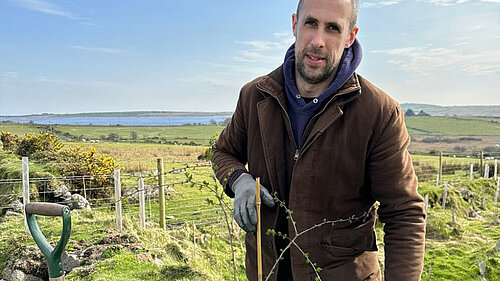Cornwall's Common Land: A Treasure Undervalued

Cornwall, renowned for its stunning coastline, also boasts a significant area of common land, estimated at approximately 60,000 acres. As we increasingly recognise the vital connection between nature and our well being, we are beginning to appreciate the immense value of this often-overlooked resource, especially the moors. Comparable in importance to mining, fishing, and farming, common land is crucial to Cornwall's tourism and defines much of its open countryside, offering public access to a unique landscape. Despite its irreplaceable nature, it often remains undervalued and, sadly, poorly managed.
Common land, as the name suggests, is for everyone to enjoy and serves three primary purposes: providing space for nature, offering grazing land for livestock, and ensuring public access to the countryside. While grazing plays a vital role in land management, a delicate balance between farming, nature conservation, and public access is crucial. Too often, this balance is disrupted.
Several organisations are responsible for overseeing and managing common land. The Department for Environment, Food & Rural Affairs (Defra) provides funding, while Natural England acts as the legal overseer. Cornwall Council also plays a crucial role in managing grazing rights, access provisions, and nature designations. Additionally, the Cornwall National Landscape (formerly the Area of Outstanding Natural Beauty or AONB) contributes to its preservation. However, despite taxpayer funding for these governing bodies, commons are often left to self-regulate, leading to mismanagement and an imbalance among the three core purposes.
With so much attention focused on reworking Rural Payments for private farmland, otherwise known as ELMS payments, which aim to encourage farmers to make space for nature, the commons are being largely overlooked and ignored. The commons are an entirely forgotten land, possessing the potential to yield a massive amount of biodiversity gains and provide a refuge and recovery space for nature. At the same time, they could offer better access for the public to connect with nature for well-being. Surely, we need to focus our efforts on addressing the ongoing and deep-rooted issues surrounding common land management.
To safeguard this vital resource for future generations, we need stronger enforcement of existing rules and better oversight. If we are truly committed to restoring wildlife and biodiversity, focusing on common land, a space offering multiple benefits for both nature and community, is essential. This extensive land area represents a significant opportunity to accelerate positive change and deliver tangible benefits to taxpayers. While livestock grazing is a key element of common land management, it must be carefully controlled to prevent overgrazing and overstocking beyond legal grazing rights.
In conclusion, a win-win scenario is possible for nature, farming, and the public, but only with proper management, adequate funding, and effective governance. By prioritising the responsible stewardship of Cornwall's common land, we can unlock its full potential and ensure its enduring value for generations to come.
The Liberal Democrats are committed to Strengthen the Office for Environmental Protection and provide more funding to the Environment Agency and Natural England to help protect our environment and enforce environmental laws.
Thomas Thrussell, Cornwall Council candidate for Liberal Democrats in St Cleer and Menheniot
